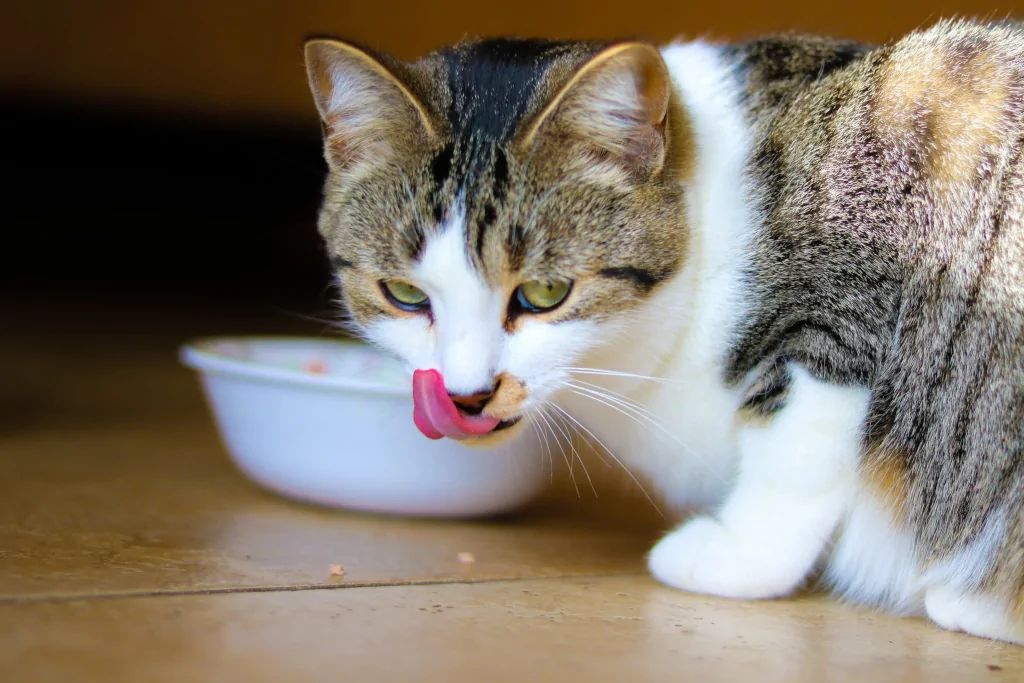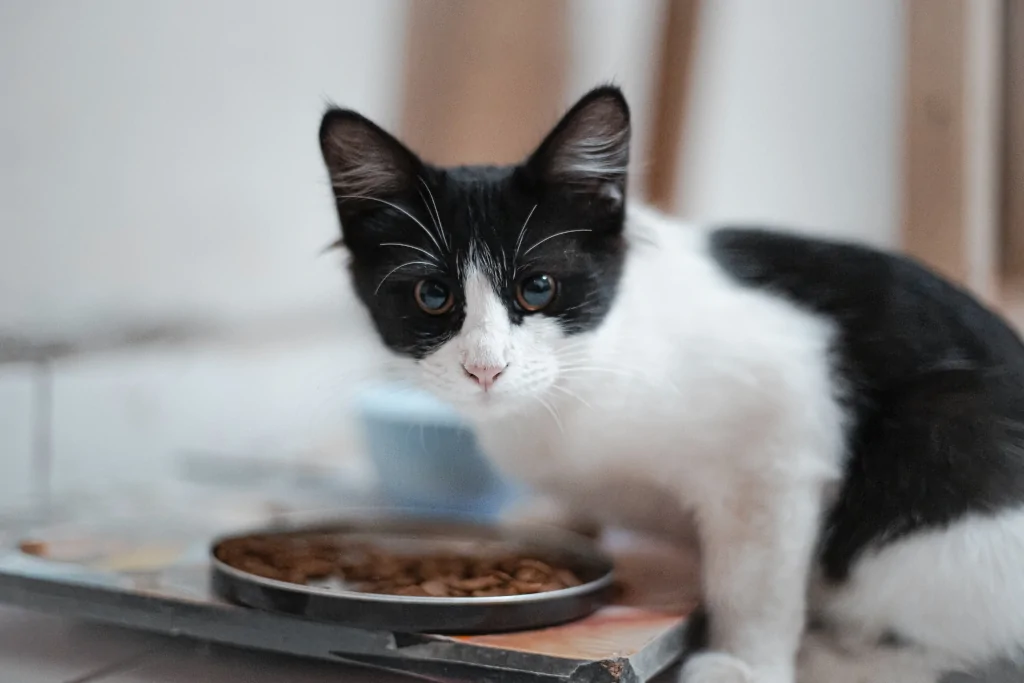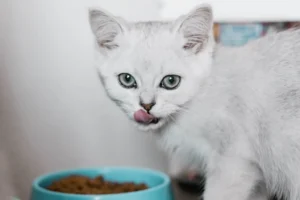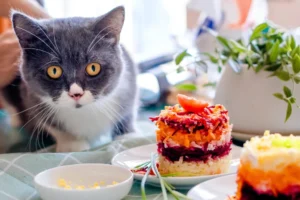Have you ever wondered why your feline friend turns up their nose at the cat food you carefully selected? You’re not the only one puzzled by their picky eating habits. Cats can be quite finicky when it comes to their meals, but why is that?
Understanding the reasons behind your cat’s preferences might just help you find the perfect meal for them. Let’s delve into the mystery of why some cats dislike cat food, and explore how you can make mealtime more appealing for your feline companion.

Why Do Some Cats Dislike Cat Food?
Cats are notorious for being selective eaters, and there are several factors that can contribute to their dislike of certain cat foods.
For instance, my cat would only eat chicken-flavored kibble, completely ignoring any fish-based options. It was baffling, but it turns out, there’s a science behind it.
One reason cats may dislike certain cat foods is their strong sense of smell. A cat’s sense of smell is 14 times stronger than a human’s, so even a slight change in the scent of their food can make them turn up their noses.
Additionally, cats are sensitive to the texture and temperature of their food. They may prefer a specific type of kibble or wet food, and some cats even enjoy their meals slightly warmed to mimic the temperature of freshly caught prey.
Lastly, cats are obligate carnivores, meaning they have evolved to eat meat. They are instinctively drawn to food that provides the essential nutrients they need, such as protein, fat, and certain amino acids. If a cat food lacks these key ingredients or is poorly balanced, your cat might instinctively avoid it.
Related: Cat Food Ingredients List Guide
Do Cats Prefer Human Food Over Cat Food?
Cats may occasionally show an interest in human food but try to remember that their nutritional needs are different from ours.
My cat once snatched a piece of avocado toast off my plate, only to quickly lose interest after a couple of nibbles. Turns out, cats can be curious about new smells and tastes but may not necessarily prefer human food over cat food.
Some cats might be drawn to human food due to its strong aroma, texture, or taste, but feeding them human food regularly isn’t a good idea.
Cats require a diet rich in animal protein, and many human foods don’t provide the essential nutrients they need. Plus, some human foods can be toxic to cats, like onions, garlic, chocolate/chocolate milk, and grapes.
So, while it’s tempting to share your dinner with your furry friend, it’s best to stick to cat food designed to meet their nutritional needs.
What Flavors Do Cats Love the Most?
Cats have their own unique flavor preferences, just like humans. While there isn’t a one-size-fits-all answer, some flavors tend to be more popular among our feline friends.
For example, my 2nd cat seems to have an unending love affair with anything fish-flavored. She would literally do backflips for a taste of tuna or salmon.
In general, cats are attracted to flavors that mimic their natural prey, such as fish, poultry, and game meats. However, individual cats may have different tastes, so it’s essential to pay attention to your cat’s preferences when choosing their food.
Offering a variety of flavors can help you determine which ones your cat enjoys the most.
Some cats may also be more receptive to certain textures, such as pate or shredded wet food, while others may prefer dry kibble.
Experimenting with different flavor and texture combinations can help you find the perfect meal to satisfy your cat’s taste buds. Just remember to make any dietary changes gradually to avoid upsetting their sensitive stomachs.

How to Choose the Best Cat Food for Your Feline Friend
Selecting the best cat food for your cat can be a bit overwhelming, but here are some key factors to consider when making your choice:
- Nutritional needs. Look for cat food that meets the dietary requirements of your cat’s age, size, and activity level. For a kitten, choose a food formulated for growth, while for a senior cat, select one designed to support their aging body.
- Quality ingredients. Prioritize high-quality, natural ingredients and avoid artificial preservatives, colors, and flavors. Opt for a cat food with real meat as the first ingredient, rather than by-products or meal.
- Protein source. Opt for cat food with high protein content, primarily from animal-based sources like chicken, fish, or beef.
- Balanced nutrients. Ensure the cat food contains the right balance of vitamins, minerals, and essential fatty acids to support your cat’s overall health. Look for a food that contains antioxidants for immune support, as well as essential vitamins and minerals like calcium and phosphorus for strong bones.
- Brand reputation. Research cat food brands, read reviews, and consider recommendations from your veterinarian. After noticing a positive change in my cat’s coat when I switched to a highly recommended brand, I realized the importance of choosing a reputable cat food manufacturer.
Related: Guide to Cat Food Brands
Can a Cat Get Bored With Its Food?
Cats can indeed become bored with their food, just like humans can grow tired of eating the same meal every day.
I remember when my cat stopped eating his favorite chicken-flavored kibble. He would just sit by his bowl, giving me the “seriously, this again?” look. After consulting with my vet, I learned that rotating his diet could help keep him interested in his meals.
To prevent boredom, consider offering your cat a variety of flavors, textures, and types of food, like alternating between wet and dry food.
However, it’s important to make any dietary changes gradually to avoid upsetting your cat’s stomach. Introduce new foods slowly by mixing them with the current food, increasing the proportion of the new food over a week or two.
If your cat suddenly loses interest in their food and you’ve ruled out boredom, consult your veterinarian to ensure there isn’t an underlying health issue causing their change in appetite.
Suggested read: Raw Cat Food Pros & Cons
The Importance of Variety in Your Cat’s Diet
A varied diet is not only essential for keeping your cat interested in their meals but also for ensuring they receive a balanced intake of essential nutrients.
Different types and flavors of food provide varying nutrients, so including variety in your cat’s diet can help cover all bases and support their overall health and well-being.
FAQs
Can cats have a food allergy to certain cat foods?
Cats can develop food allergies, with common allergens including beef, dairy, fish, and chicken. If you suspect your cat has a food allergy, consult your veterinarian for proper diagnosis and guidance.
How often should I switch my cat’s food to prevent boredom?
To prevent boredom, consider rotating your cat’s food every few weeks or months. Introduce new foods gradually to avoid digestive upset.
Are some cat food brands more appealing to cats than others?
Some cat food brands may be more appealing due to higher-quality ingredients, flavors, or textures. However, individual cats have unique preferences, so it’s important to find what works best for your feline friend.
Is wet food or dry food better for my cat?
Both wet and dry food have their benefits. Wet food provides hydration and is often more palatable, while dry food can be more convenient and helps maintain dental health. A combination of both types can provide a balanced diet for your cat.
Alex, a passionate animal lover, has experience in training and understanding animal behavior. As a proud pet parent to two dogs and three cats, he founded AnimalReport.net to share insights from animal experts and expand his knowledge of the animal kingdom.




